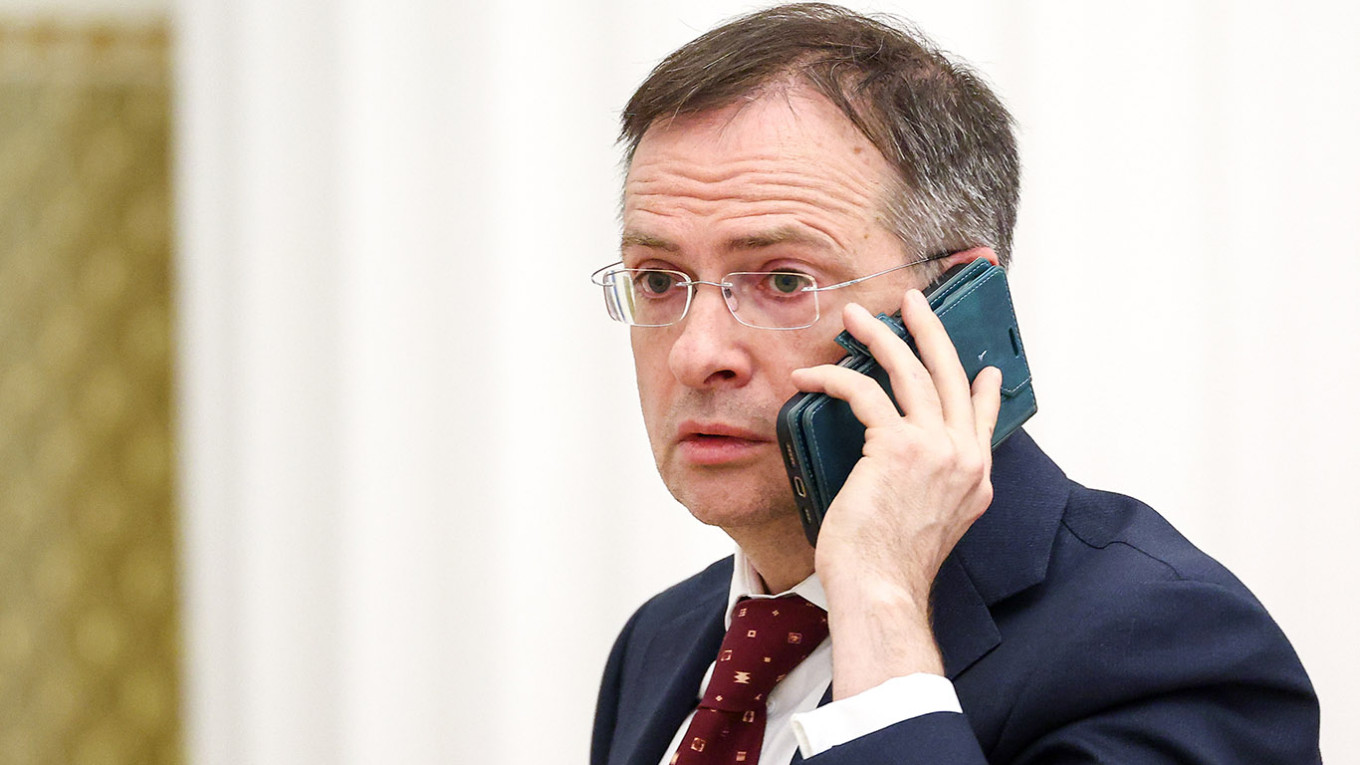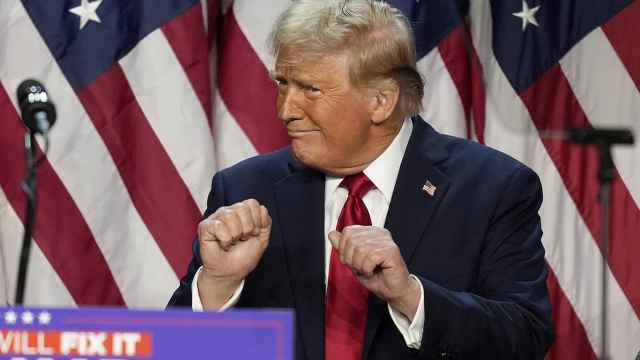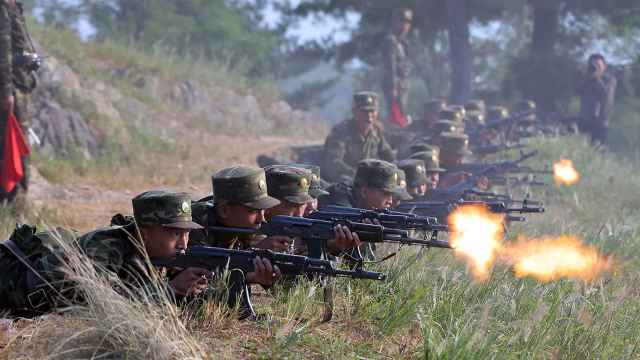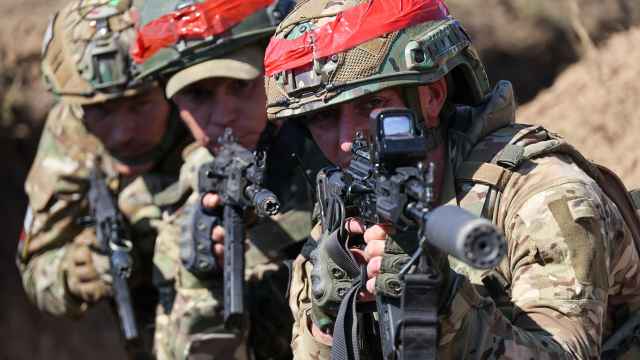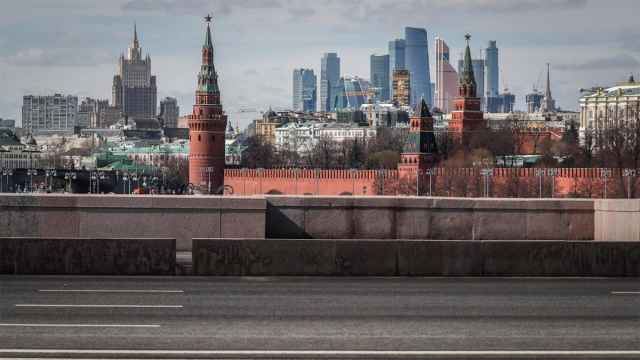Russia and Ukraine on Friday held nearly two hours of peace talks in Turkey, the two sides’ first direct negotiations since their failed talks in the early weeks of the Kremlin’s invasion in 2022.
President Vladimir Putin declined his Ukrainian counterpart Volodymyr Zelensky’s offer to meet face-to-face in Istanbul, instead sending a delegation led by Vladimir Medinsky, the Kremlin aide who led the negotiations with Ukraine in March and April 2022.
Medinsky was joined by Deputy Foreign Minister Mikhail Galuzin, Deputy Defense Minister Alexander Fomin and Igor Kostyukov, the head of Russia’s GRU military intelligence agency.
Experts have described Moscow’s revival of direct talks within the Istanbul framework as a symbolic gesture not intended to seek a real solution to the war.
The Moscow Times takes a closer look at the man heading Russia’s delegation:
Political career
Medinsky, 54, is a prominent Russian political figure and historian known for his hardline nationalist views and close ties to Putin.
A former State Duma deputy, he also serves as the chairman and first secretary of the Union of Writers of Russia as well as chairman of the Russian Military Historical Society.
During his time as culture minister from 2012-2020, Medinsky implemented policies aimed at reinforcing state control over cultural narratives, believing that culture should serve patriotic purposes.
Passion for history
Medinsky is a prolific author, having written several books that promote Russian nationalism and challenge Western narratives about the country’s past in line with Putin’s narrative.
His “Myths About Russia” series, which aims to debunk what he considers false stereotypes about Russia, has drawn sharp criticism from historians.
A group of scholars published a book titled “Anti-Medinsky: A Refutation. How the Ruling Party ‘Edits’ History,” challenging his interpretations and accusing him of distorting historical facts to serve political agendas.
In 2017, Medinsky faced a major academic scandal over his doctoral dissertation, "Problems of objectivity in the portrayal of Russian history in the second half of the 15th to 17th centuries,” which several historians criticized as unscientific and riddled with errors.
The expert council of Russia’s Higher Attestation Commission recommended revoking his doctorate, but Medinsky kept his degree.
Role in the Ukraine war
Following Russia's full-scale invasion of Ukraine in 2022, Medinsky, who was born in Ukraine, emerged as a key figure in the diplomatic efforts between the two countries, representing the Kremlin's interests at the negotiating table.
According to the draft 2022 Istanbul Communique, which Reuters reviewed, Ukraine would agree to permanent neutrality in return for international security guarantees from the five permanent members of the UN Security Council as well as other nations including Belarus, Canada, Germany, Israel, Poland and Turkey.
Ukraine provisionally agreed to non-nuclear neutrality and forgoing NATO membership in return for a security guarantee. That guarantee would oblige the U.S. and its allies to fight Russia directly if Russia invaded Ukraine again, Reuters reported.
The talks broke down after several rounds of negotiations.
Medinsky’s reappointment as chief negotiator in 2025 was met with skepticism by experts and Ukrainian officials, who questioned his authority to make binding decisions.
Zelensky called the Russian delegation led by Medinsky a “sham” that lacks a genuine intent to end the conflict.
“The head of the delegation…does not look quite appropriate here,” said Alexander Baunov, a senior fellow at the Carnegie Endowment for International Peace. “He is neither a technocrat nor a specialist, but a highly ideological and inaccurate interpreter of history for a mass audience.”
“In a way, this fits Putin’s view of the war in Ukraine as primarily a means to correct a historical mistake: the emergence of a separate and, moreover, a ‘wrong’ Ukraine,” Baunov said.
“Some say that Medinsky’s role is acceptable because he supposedly ‘almost reached’ an agreement in spring 2022…In fact, all the most contentious issues were left for personal meetings at higher and highest levels,” he said, referring to questions surrounding Russian-occupied territories, the size of the Ukrainian army and the list of peace-guarantor countries.
A Message from The Moscow Times:
Dear readers,
We are facing unprecedented challenges. Russia's Prosecutor General's Office has designated The Moscow Times as an "undesirable" organization, criminalizing our work and putting our staff at risk of prosecution. This follows our earlier unjust labeling as a "foreign agent."
These actions are direct attempts to silence independent journalism in Russia. The authorities claim our work "discredits the decisions of the Russian leadership." We see things differently: we strive to provide accurate, unbiased reporting on Russia.
We, the journalists of The Moscow Times, refuse to be silenced. But to continue our work, we need your help.
Your support, no matter how small, makes a world of difference. If you can, please support us monthly starting from just $2. It's quick to set up, and every contribution makes a significant impact.
By supporting The Moscow Times, you're defending open, independent journalism in the face of repression. Thank you for standing with us.
Remind me later.


